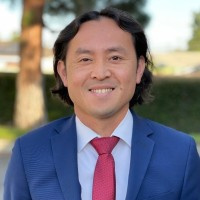Santa Fe Springs Felony Lawyer, California
Sponsored Law Firm
-
 x
x

Click For More Info:
-
Nghi Lam, Attorney at Law
17111 Beach Blvd. Suite 212 Huntington Beach, CA 92647» view mapCriminal Defense Law Results-Oriented Legal Representation
We pride ourselves on being aggressive in the courtroom while also being responsive to our clients’ needs.
800-774-3671
Andrew Marc Stein
✓ VERIFIEDCriminal, DUI-DWI, Felony, Misdemeanor
Andrew M. Stein has been practicing law for over thirty years and has specialized in the area of criminal law and civil rights. He received his Bachel... (more)
Anthony Tall
✓ VERIFIEDCriminal, Felony, Misdemeanor, Divorce & Family Law
19 years experience
Anthony Tall is a practicing lawyer in the state of California. Attorney Tall received his J.D. from the Thomas Jefferson School of Law.
Alex Meza Moisa
Family Law, Felony, Consumer Rights, Car Accident
Status: In Good Standing Licensed: 31 Years
Craig Wilke
White Collar Crime, RICO Act, Felony, Civil Rights
Status: In Good Standing Licensed: 34 Years
FREE CONSULTATION
CONTACTFREE CONSULTATION
CONTACTJames Appel
Criminal, Traffic, DUI-DWI, Misdemeanor, Felony
Status: In Good Standing Licensed: 43 Years
Jisoo Hwang
Landlord-Tenant, Government, Felony, Civil & Human Rights
Status: In Good Standing Licensed: 9 Years
 Nghi Lam Huntington Beach, CA
Nghi Lam Huntington Beach, CA Practice AreasExpertise
Practice AreasExpertise


